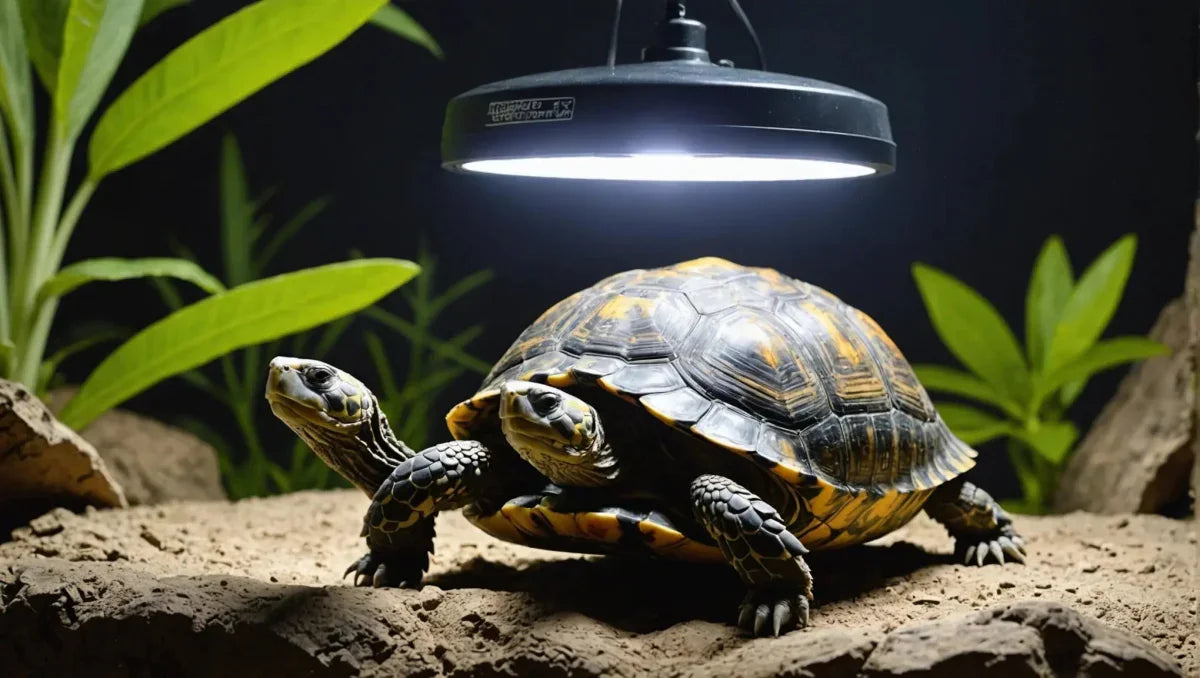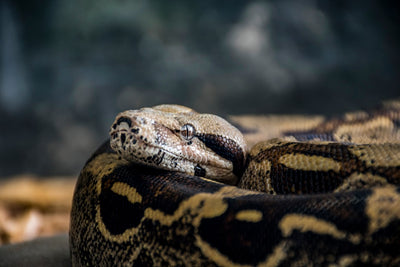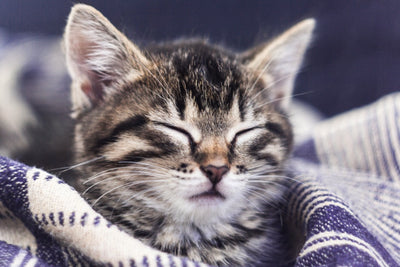
UV Basking Lamps play a crucial role in providing essential ultraviolet (UV) light to tortoises, aiding in their overall health and well-being. These specialized lamps simulate natural sunlight, helping tortoises to metabolize calcium and maintain strong shells. With the right UV Basking Lamp, tortoises can regulate their body temperature, improve digestion, and prevent common health issues. Understanding the importance of UV light for tortoises is key to creating a suitable habitat that mirrors their natural environment. This introduction will delve into the significance of UV Basking Lamps for tortoise care, exploring the benefits they offer and the proper usage guidelines to ensure the health and vitality of these beloved reptiles.
Understanding UV Light for Tortoises
UV Requirements for Tortoises
- The Vital Role of UV Light: Delving into the specific UV requirements that tortoises have in terms of UVB and UVA light is crucial for their health and well-being. Tortoises, being ectothermic creatures, rely heavily on external sources of UV light to regulate their metabolism and develop strong shells. Without adequate UV exposure, tortoises can suffer from various health issues, including metabolic bone disease and shell deformities.
Benefits of UV Light for Tortoise Health
- A Holistic Approach to Health: UV light is not just beneficial but essential for tortoise health. It aids in calcium absorption, which is crucial for shell strength and overall bone health. Moreover, exposure to UV light boosts their immune system, contributes to better digestion, and promotes natural behaviors like basking, which are vital for their mental and physical well-being. Lack of proper UV exposure can lead to deficiencies and health problems in tortoises.
Types of UV Lamps
- Choosing the Right Light Source: There are various types of UV lamps available in the market suitable for tortoises. Fluorescent bulbs are a popular choice, providing a good balance of UVB and UVA. Mercury vapor bulbs emit both UVB and UVA rays over a greater distance, making them ideal for larger habitats. LED UV lamps, while energy-efficient and long-lasting, may have limitations in their UV spectrum. It is crucial to select a UV lamp that meets the specific requirements of your tortoise species to ensure optimal health and well-being.
Additional Considerations
- Environmental Factors: Apart from UV light, factors like temperature, humidity, and diet also play a significant role in the overall well-being of tortoises. Providing a well-rounded habitat with proper UV exposure, temperature gradients, and a balanced diet is essential for their health.
Understanding the UV light requirements, harnessing the benefits it offers, and selecting the right UV lamp are crucial aspects of caring for tortoises. By providing adequate UV exposure and addressing other environmental factors, you can help your tortoise thrive and lead a healthy life.
Choosing the Right UV Basking Lamp
When it comes to providing proper heating and lighting for your reptile, selecting the right UV basking lamp is crucial. Not all lamps are created equal, and choosing the right one can greatly impact your pet's health and well-being. Here's an in-depth guide on factors to consider, recommended UV basking lamps, installation, and usage tips to ensure your reptile thrives under the best lighting conditions.
Factors to Consider When Choosing a UV Basking Lamp
-
UVB Output: Ensure the lamp provides adequate UVB rays, essential for reptiles to synthesize Vitamin D3, crucial for calcium absorption and overall health.
-
UVA Output: Look for lamps that emit UVA rays to stimulate natural behaviors and promote mental and physical well-being.
-
Size of Enclosure: Consider the dimensions of your reptile's habitat as different lamps have varying effective ranges.
-
Brand and Quality: Opt for reputable brands known for producing high-quality UV basking lamps to ensure longevity and optimal performance for your pet.
Recommended UV Basking Lamps for Different Reptile Species
-
Brand A's Pro Series UVB Lamp: With high UVB output and a long lifespan, it's ideal for desert-dwelling reptiles like bearded dragons and uromastyx.
-
Brand B's Tropical UV Lamp: Specifically designed for tropical species such as chameleons and tree frogs, providing both UVB and UVA for a balanced spectrum.
-
Brand C's Mercury Vapor Bulb: Offering UVB, UVA, and heat, it's a versatile option suitable for various reptiles including turtles and tortoises.
Additional Tips for Installation and Usage
-
Positioning: Place the lamp at the correct distance from basking spots to ensure your reptile receives the appropriate UV exposure.
-
Photoperiod: Maintain a consistent light cycle resembling natural day and night patterns to support your reptile's circadian rhythm.
-
Replacement Schedule: Replace UVB bulbs every 6-12 months to ensure your reptile continues to receive adequate UV light for its well-being.
-
Temperature Monitoring: Use a reliable thermometer to monitor basking spot temperatures and ensure they align with the requirements of your reptile species.
By carefully considering these factors, selecting a suitable UV basking lamp, and following proper installation and usage guidelines, you can provide your reptile with the necessary UV light for optimal health and wellness, promoting natural behaviors and overall quality of life.
UV Lamp Maintenance and Safety
When it comes to ensuring the longevity and effectiveness of your UV lamp, proper maintenance and safety measures are key. In this blog section, we will delve into the essential aspects of UV lamp maintenance and safety to help you maximize its performance and longevity.
Cleaning and Replacement.
Proper maintenance of UV lamps involves regular cleaning and timely replacement. Dust, dirt, and debris can accumulate on the lamp's surface over time, diminishing its effectiveness. To clean the lamp, use a soft cloth and mild detergent to remove any buildup gently. Remember, UV lamps have a limited lifespan, so it's crucial to replace them according to the manufacturer's recommendations for optimal performance.
Safety Precautions.
UV lamps emit ultraviolet light, which can be harmful if not handled carefully. When working with UV lamps, always prioritize safety precautions. Wear protective gear like gloves and goggles to shield your skin and eyes from UV exposure. Avoid direct exposure of skin and eyes to the UV light to prevent skin damage and eye irritation.
Common Mistakes to Avoid.
To maintain the longevity and safety of your UV lamp, steer clear of common mistakes that can compromise its performance and safety. Avoid using the lamp without proper ventilation, exposing it to moisture or humidity, or operating it beyond the recommended usage hours. By understanding these mistakes and taking preventive measures, you can ensure your UV lamp's efficiency and safety.
Additional Tips for UV Lamp Maintenance.
In addition to regular cleaning and replacement, here are some extra tips to enhance your UV lamp's performance:.
- Check the lamp's intensity regularly to ensure it's operating at optimal levels.
- Keep the lamp's surroundings clean and dust-free to prevent interference with its function.
- Store replacement lamps properly in a cool, dry place to maintain their quality.
- Consider using UV lamp covers or shields to protect the lamp from external elements.
By incorporating these tips into your UV lamp maintenance routine, you can extend its lifespan and maintain a safe working environment.
Prioritizing proper maintenance and safety practices is essential for the efficient operation of UV lamps. By following the recommendations provided in this blog section and implementing additional tips, you can safeguard your UV lamp, optimize its performance, and ensure a secure workspace for yourself and others.
Conclusion
Incorporating a UV basking lamp into a tortoise's care routine is essential for mimicking their natural habitat and ensuring their overall health and well-being. By providing the necessary ultraviolet light exposure, tortoises can properly metabolize calcium, maintain strong bones, and regulate their bodily functions. Remember, proper lighting is crucial for the proper growth and development of your pet tortoise. Make sure to consult with a reptile specialist to determine the specific UV requirements for your tortoise species.






